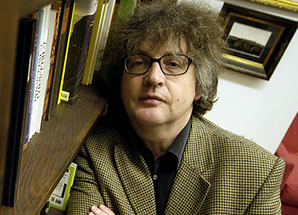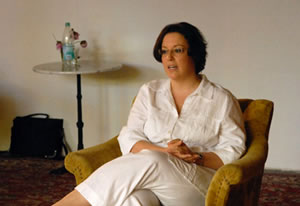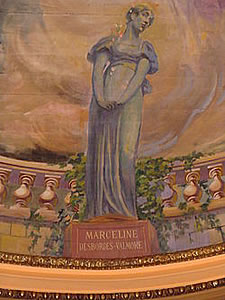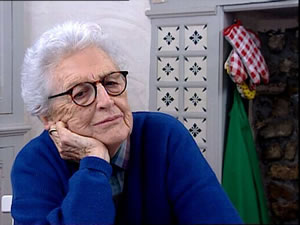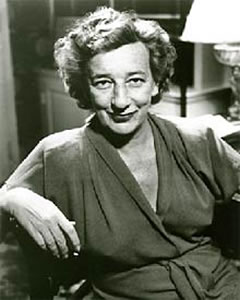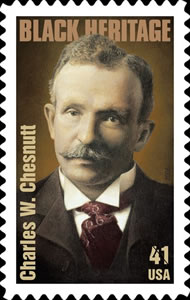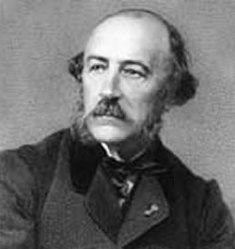De Indische dichter en schrijver Vikram Seth werd geboren op 20 juni 1952 in Kolkata. Zie ook alle tags voor Vikram Seth op dit blog.
All you who sleep tonight
All you who sleep tonight
Far from the ones you love,
No hands to left or right,
And emptiness above –
Know that you aren’t alone.
The whole world shares your tears,
Some for two nights or one,
And some for all their years.
Can’t
I find I simply can’t get out of bed.
I shiver and procrastinate and stare.
I’ll press the reset button in my head.
I hate my work but I am in the red.
I’d quit it all if I could live on air.
I find I simply can’t get out of bed.
My joints have rusted and my brain is lead.
I drank too much last night, but now I swear
I’ll press the reset button in my head.
My love has gone. What do I have instead? –
Hot-water bottle, God and teddy bear.
I find I simply can’t get out of bed.
The dreams I dreamt have filled my soul with dread.
The world is mad, there’s darkness everywhere.
I’ll press the reset button in my head.
Who’ll kiss my tears away or earn my bread?
Who’ll reach the clothes hung on that distant chair?
I must, I simply must get out of bed
And press that reset button in my head.
Unclaimed
To make love with a stranger is the best.
There is no riddle and there is no test. –
To lie and love, not aching to make sense
Of this night in the mesh of reference.
To touch, unclaimed by fear of imminent day,
And understand, as only strangers may.
To feel the beat of foreign heart to heart
Preferring neither to prolong nor part.
To rest within the unknown arms and know
That this is all there is; that this is so.

De Ierse dichter en schrijver Paul Muldoon werd geboren in Portadown, County Armagh, in Noord-Ierland op 20 juni 1951, Zie ook alle tags voor Paul Muldoon op dit blog
The Old Country (Fragment)
VII
Every cut was a cut to the quick
what with every feather a feather to ruffle.
Every whitrack was a whitterick.
Everyone was in a right kerfuffle
when from his hob some hobbledehoy
would venture the whitterick was a curlew.
Every wall was a wall of Troy
and every hunt a hunt in the purlieu
of a demesne so out of bounds
every hound might have been a hellhound.
At every lane end stood a milk churn
whose every dent was a sign of indenture
to some pig wormer or cattle drencher.
Every point was a point of no return.
VIII
Every point was a point of no return
for those who had signed the Covenant in blood.
Every fern was a maidenhair fern
that gave every eye an eyeful of mud
ere it was plucked out and cast into the flame.
Every rowan was a mountain ash.
Every swath-swathed mower made of his graft a game
and the hay sash
went to the kemper best fit to kemp.
Every secretary was a temp
who could shift shape
like the river goddesses Banna and Boann.
Every two-a-penny maze was, at its heart, Minoan.
Every escape was a narrow escape.
IX
Every escape was a narrow escape
where every stroke was a broad stroke
of an ax on a pig nape.
Every pig was a pig in a poke
though it scooted once through the Diamond
so unfalt—so unfalteringly.
The threshold of pain was outlimened
by the bar raised at high tea
now every scone was a drop scone.
Every ass had an ass’s jawbone
that might itself drop from grin to girn.
Every malt was a single malt.
Every pillar was a pillar of salt.
Every point was a point of no return.

De Duitse schrijver, dichter en kunstenaar Kurt Schwitters werd geboren op 20 juni 1887 in Hannover. Zie ook alle tags voor Kurt Schwitters op dit blog.
One day
One day
You finish to be a boy.
But you play
Still with your old toy.
You like all the old angels
As you did before,
And think they are girls,
Beautiful girls.
You think they are like you
When you were young
But you are old,
And die and get cold.
Entspannung
Es fällt von mir ab eine kleine weiße Wolke.
Ich liege im Tal unter Lilien und rufe.
Der Hauch ihrer Hand zittert im Wind.
Eine große schwarze Wolke fällt in den Topf.
Daß die Henkersknechte sie sieden,
Daß sie Asche werde

Merzbild – Rossfett door Kurt Schwitters, 1919
De Franse dichter en schrijver Jean-Claude Izzo werd geboren op 20 juni 1945 in Marseille. Zie ook alle tags voor Jean-Claude Izzo op dit blog.
Uit: Chourmo
« Ange nous avait installés sur la terrasse, avec une bouteille de rosé de Puy-Sainte-Réparade. Au menu, petits farcis de tomates, de pommes de terre, de courgettes et d’oignons. J’avais faim, et c’était un délice. J’aime ça, manger. Mais c’est pire quand j’ai des ennuis, et pire encore quand je côtoie la mort. J’ai besoin d’ingurgiter des aliments, légumes, viandes, poissons, dessert ou friandises. De me laisser envahir par leurs saveurs. Je n’avais rien trouvé de mieux pour réfuter la mort. M’en préserver. La bonne cuisine et les bons vins. Comme un art de survivre. Ça ne m’avait pas trop mal réussi jusqu’à aujourd’hui. Loubet et moi gardions le silence. Nous avions juste échangé quelques banalités en mangeant un peu de charcuterie. Il ruminait ses hypothèses. Moi, les miennes. Cûc m’avait proposé un thé, un thé noir. « Je crois que je peux vous faire confiance », avait-elle commencé. J’avais répondu que, pour l’heure, il n’était pas question de confiance, seulement de vérité. D’une vérité à avouer au flic chargé de l’enquête. L’identité de Guitou. — Je ne vais pas vous raconter toute ma vie, expliqua-t-elle. Mais vous comprendrez mieux quand je vous aurai raconté certaines choses. Je suis arrivée en France à dix-sept ans. Mathias venait de naître. C’était en 1977. Ma mère avait décidé qu’il était temps de partir. Le fait que je vienne d’accoucher a peut-être été pour quelque chose dans sa décision. Je ne sais plus. Elle me jeta un coup d’oeil furtif, puis elle attrapa un paquet de Craven A et alluma une cigarette nerveusement. Son regard se perdit dans une volute de fumée. Très loin. Elle poursuivit. Ses phrases s’étiraient parfois en de longs silences. Sa voix s’atténuait. Des mots restaient en suspens, dans l’air, et elle semblait les écarter d’un revers de main en chassant la fumée de sa cigarette. Son corps ne bougeait pas. Seuls ses longs cheveux se balançaient au rythme de la tête, qu’elle inclinait comme à la recherche d’un détail perdu. Je l’écoutai, attentif. Je n’osais croire être le premier à qui elle faisait confidence de sa vie. Je savais qu’au bout de son récit il y aurait un service en échange. Mais, par cette intimité soudaine, elle me séduisait. Et ça marchait. — Nous sommes rentrés, ma mère, ma grand-mère, mes trois soeurs cadettes, l’enfant et moi. Ma mère a eu beaucoup de cran. Vous savez, nous faisions partie de ce qu’on appelait les rapatriés. Ma famille était naturalisée depuis 1930. D’ailleurs, j’ai la double nationalité. Nous étions considérés comme des Français. Mais l’arrivée en France n’eut rien d’idyllique. De Roissy, nous avons été emmenés dans un foyer de travailleurs à Sarcelles. »

Cover
De Duitse dichteres, schrijfster en kunsthistorica Silke Andrea Schuemmer werd geboren op 20 juni 1973 in Aken. Zie ook alle tags voor Silke Andrea Schuemmer op dit blog.
Uit: Nixen fischen
„Unter
seinem Pullover zeichnete sich deutlich seine fleischige Brust ab. Er
schob einen Finger durch das Zopfmuster und befühlte seine Brustwarze,
während er sie weiter musterte.
»Studierst du hier?«
Ines räusperte sich. »Erstes Semester.«
Er
nickte. »Zu alt für mich. Der gute Knut liebt die frischesten Fischlein
– aber der Hempler, der wird seine Schatzkiste öffnen.«
Er wies Ines mit einer leichten Verbeugung in den hinteren Teil des Ladens.
»Hempler ist ein Kollege. Macht in antike Stoffe. Ehrbarer Mann.«
Er
schob Ines einen Stuhl hin. Noch bevor sie sich setzen konnte, schubste
das kahlrasierte Mädchen das andere, die schlug zurück, sie knurrten
und begannen miteinander zu ringen. Unter Fauchen und Jaulen fiel ein
Stuhl um, und das Gerangel ging auf dem Boden weiter, so dass Ines ein
Stück abrückte.
Seckig verschränkte die Arme vor der Brust und sah zu. Schließlich wies er sie zischend zurecht.
»Pütti! Mümmerle! Au pied! Sofort!«
Ines
duckte sich unter seinem schneidenden Tonfall. Seine Hand zeigte neben
sich auf den Boden, er blieb in dieser Pose stehen, bis die Mädchen
aufstanden und zu ihm trotteten.
Beide
waren so blass, dass die Adern an den Schläfen bläulich leuchteten. Die
Haut auf den Wangen war trocken und schuppig. Ihre Augen waren dick mit
zerlaufenem Kajal geschminkt, die Kahlrasierte hatte eine
Sicherheitsnadel im Ohr mit einem Kettchen bis zum Nasenflügel. Sie
schmiegten sich an Seckig, dem sie gerade bis zur Brust gingen, und
rieben seinen Bauch und seine stockartigen Oberschenkel. Er lachte
glucksend, drückte ihnen je einen Schein in die Hand und küsste sie auf
den Mund, wobei seine dicke, noppige Zunge zuckte und kreiselte, und
scheuchte sie schließlich mit Klapsen auf die mageren Hüften zurück auf
ihre Stühle. Da saßen sie wieder unbewegt und schweigend. Er seufzte und
rollte mit den Augen.
»Die beiden reizenden Kindchen sorgen für Momente glückseliger Kontemplation. Aber man muss wohl auch ein Auge haben.«
Er streckte Ines erneut die Hand hin.
»Also nochmals und offiziell: Ich bin der Inhaber dieses Etablissements.«
»Ines. Ich komme wegen des Polaroids.«
Sie
ließ ihre Hand ganz schlaff werden in seiner, eine feuchte Flosse,
damit er sie nicht länger als notwendig hielt, aber es schien ihm nichts
auszumachen. Schließlich zog sie ihre Hand zurück und setzte sich.“

De Nederlandse schrijver Carel van Nievelt werd op 20 juni 1843 geboren in Delfshaven, als zoon van een boekhandelaar. Zie ook alle tags voor Carel van Nievelt op dit blog.
Uit: Mijn Angelo. Herinneringen van het Garda-meer
“Ter linkerhand besproeit zij den machtigen, met sneeuw gekroonden Monte Baldo, ter rechter de vervaarlijk uit hare diepte steigerende kalkrotsen van den Giumella den voet. En zuidwaarts heen, waar de schouderen der bergen haar niet meer knellen, verliest zij zich, breed als eene zee, in eenen wazigen horizon van sidderend goud.
Ik wil u niet haasten; ik wil niet ontijdig u den traan van verrukking doen wegwisschen, die bij het aanschouwen dezer heerlijkheid misschien uw blik benevelde. Maar als gij eindelijk weer opstaat – – want het is inderdaad te warm om hier lang te zitten; en prachtiger nog zult gij dit uitzicht vinden tegen den avond, wanneer de gebergten zich gehuld hebben in violette schaduwen, en ds Ora, de krachtige zuidenwind, die hier telken namiddag opsteekt, het lauwe floers zal weggerold hebben van over het water, zoodat gij, in het uren, uren verre zuidelijke verschiet, zelfs de lijnen zult kunnen onderscheiden van het heuvelland tusschen Brescia en Verona – – ik zeg, als gij weer opstaat, en verder wilt, dan raad ik u van den postwagen gebruik te maken, die daar als een deus ex machina juist komt aangerommeld. Gij wendt dan van uw hoofd het zeer dreigende ongeval van een zonnesteek; en tevens verhoogt ge uzelven aanmerkelijk in de schatting van het bedienend personeel der Albergo del Sole te Riva, dat anders, zoo gij aamechtig en ontoonbaar van stof in de voorhalle dezer deftige inrichting uwe verschijning zoudt hebben gemaakt, onvermijdelijk in u een voorwerp zou begroet hebben van spot en verachting.
In snellen draf gaat het afwaarts. Bij het naderen van het stadje klinkt eene forsche muziek u tegen. Hoe groot is uwe verbazing, de ouverture-Freischütz te herkennen, door een uitmuntend militair orkest met vuur en juistheid uitgevoerd! – Het is ook waar, hier heerscht de Duitscher nog. Slechts Germanen kunnen onder zúlk eene hitte muziek van Weber blazen.”

Delfshaven
De Russische dichter en schrijver Robert Ivanovich Rozhdestvensky werd geboren op 20 juni 1932 in Kosikha in het district Altai Krai. Zie ook alle tags voor Robert Rozhdestvensky op dit blog.
Nostalgia
One can be nostalgic for homeland,
for the Urals, Bratsk-city, the Don and,
for the deserts, the cliffs and the mountains,
for transparent birch-trees in gardens,
for the fields with storms so severe…
I’m nostalgic for you, my dear.
.
For the mornings when you are awakened,
Your eyes and your shoulders, naked.
For the moments when you are around,
For hot nights when I’m down and out,
For your tears and words and for doubts,
For your smiles and even your shouts!
For your lips,
for bicker and wrangle…
I will fight nostalgia.
I’ll struggle.
I am leaving, attacking the platforms,
For some reason,
I yell in the phones!
-Please help me, my darling,
I’m asking
I am nostalgic, you know,
I am gasping!
No reply. You are under bed cover…
You will see it
if I recover.
Vertaald door Alec Vagapov

Cover
De Zwitserse schrijfster Laure Wyss werd geboren op 20 juni 1913 in Biel/Bienne. Zie ook alle tags voor Laure Wyss op dit blog.
Uit: Der Zahnstocher – Eine Feriengeschichte
„Als
wir uns setzten, entdeckte ich unter meinem Stuhl ein Messer, ein
hübsches Messerchen, perlmuttern, weiss, zierlich – wie es sich erwies,
als ich es aufhob, um es dem Kellner zu übergeben. Bei ihm würde sich
der Besitzer melden, sobald er seinen Verlust entdeckt hätte. «Was, so
ein handliches Messerchen, das Ihnen ausserdem wohlgefällt, das behalten
Sie doch», meinte die Frau des bernischen Pfarrers. Also wars kein
Diebstahl, keine Aneignung fremden Besitzes, vielmehr ein christlich
abgesegneter Fund, als ich das Perlmutterne in meine Tasche gleiten
liess.
Von jetzt an kam es überall mit, das Messerchen, ich konnte
nicht mehr auskommen ohne seine scharfen Klingen, sein Scherchen, seine
winzige Pinzette und seinen Zahnstocher aus Horn. Ich steckte das kleine
Messer ins Aluminiumköfferchen zum Handwerkzeug, zu den Kugelschreibern
und Bleistiften und den Papieren, als ich ins westliche Frankreich in
die Schreibferien fuhr. Der metallene Koffer sollte das Arbeitsmaterial
vor jeder Unbill einer Reise schützen – eine Illusion, die am Ufer der
Vienne, auf dem Parkplatz einer Herberge, zerplatzte, als Diebe die
Touristenautos aufbrachen, nach Checks und Devisen suchend. Ihnen fiel
das Köfferchen auf, sie nahmens mit. Die Polizei war rasch am Ort,
schrieb, notierte, ich Geschädigte auf den Posten, Klage wegen
entwendeten Arbeitsmaterials. Gegen unbekannt. «Sie werden das
Köfferchen wegwerfen, wenn sie nichts Nützliches darin finden», tröstete
der Kommissar, «vielleicht hinter eine Hecke.» Der Hecken in Frankreich
gibts viele, ich schritt die nächsten ab, guckte hinter Stauden und
Büsche, nichts leuchtete metallen auf.“

De Amerikaanse schrijfster en vertaalster Lillian Hellman werd geboren op 20 juni 1905 in New Orleans. Zie ook alle tags voor Lillian Hellman op dit blog.
Uit: The Children’s Hour
“KAREN
: No. no, no. That isn’t the way things work. Maybe you believe me. I’d
never know whether you did or not You’d never know whether you did.
either. We couldn’t do it that way. Can’t you see what would happen?
We’d he hounded by it all our lives. I’d be frightened always, and in
the end my own fright would make mc would make mc hate you. (Sees slight
mosement he makes i Yes. II would. I know it would I’d hate you for
what I thought I’d done to you. And I’d hate myself too. It would wow
and row until we’d he ruined by it. (Sees him about to speak) Mt Joe,
)ou’ve seen all that yourself. You knew it first.
“CARDIN (softly) : I didn’t mean it that way, I don’t know.
KAREN
(smiles) You’re still trying to spare me. still trying to tell yourself
that we might be all right again. But we won’t be all right. Not ever,
ever, ever I don’t know all the reasons why. Look. I’m standing here. I
haven’t changed. (Holds out her handsel My hands look just the same. my
face is the same. even my dress is old. We’re in a room we’ve been in so
many times before: you’re sitting where you always sit: it’s nearly
time for dinner. I’m like everybody else. I can have all the things that
everybody has. I can have you and a baby. and I can go to market, and
we can go to the movies, and people will talk to me and (Suddenly
13.1i1CCS the pain in his lace) Oh. I’m sorry. I mustn’t talk like that
That couldn’t he true any more
CARDIN : It could be, Karen. Well make it be like that.
KAREN : No. That’s only what we’d like to have had It’s what we can’t have now. Go home. darling.
CARDIN (with limed : Don’t talk like that. No matter what it is, we can’t leave each other. I can’t leave you_
KAREN . Joe. Joe. Let’s do it now and quick; it will be too hard later on.
CARDIN : No, no, no. We love each other. (His voice breaks) I’d give anything not to have asked that question, Karen.”

Scene uit in opvoering in York, 2017
Zie voor nog meer schrijvers van de 20e juni ook mijn blog van 20 juni 2015.



















